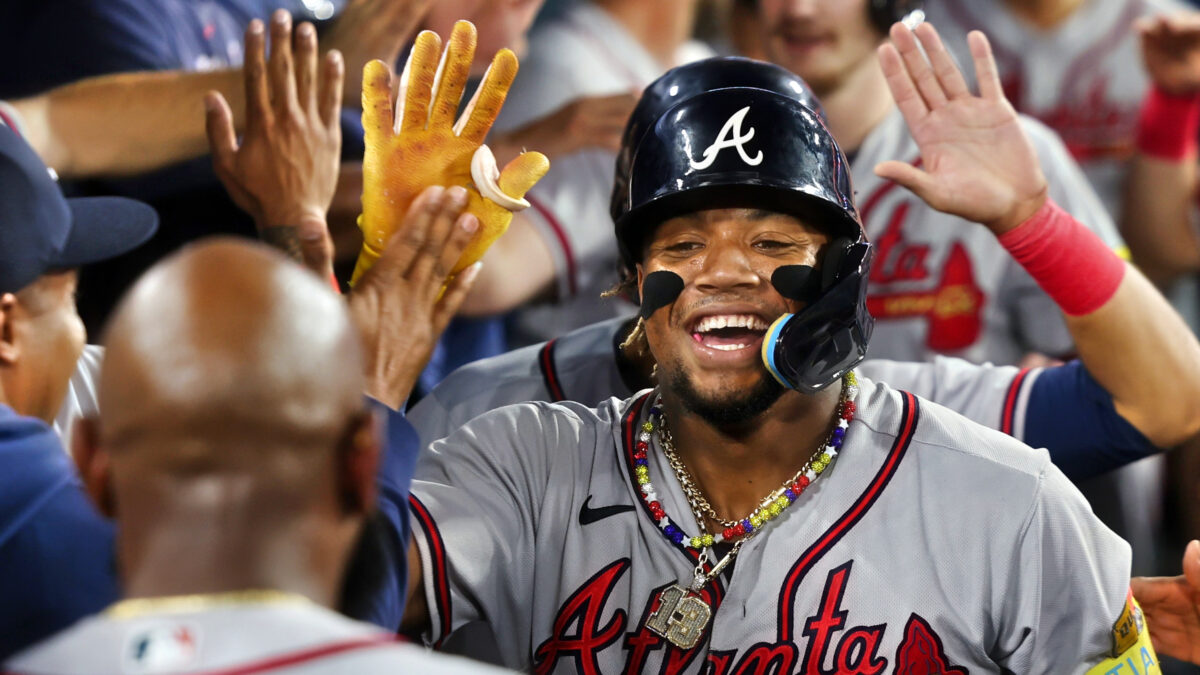
It would make sense if the best team won the championship every year in each sport, but that doesn’t always happen. Some teams seem to get lucky in the playoffs and run through the postseason to win a seemingly random championship, and others roll through the regular season and then fall apart or fail to meet expectations in the playoffs.
In baseball, six of the seven teams with the all-time best record in the regular season (by win percentage) failed to win the World Series at the end of the season; only the 2020 Dodgers, who went 43-17 in the Covid-shortened season, won the World Series with such a high win percentage. Without further ado, here are the 10 best teams that didn’t manage to win the World Series at the end of the year.
2001 Seattle Mariners
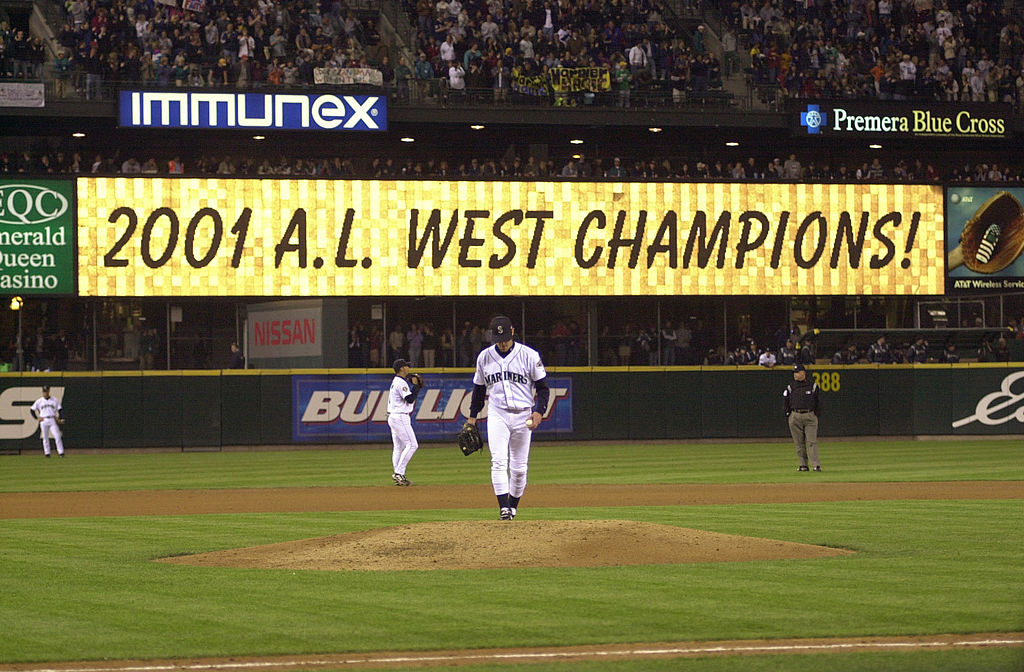
The 2001 Seattle Mariners are not just one of the greatest teams to not win the World Series, but they are also one of the greatest teams ever assembled (the same goes for the next entry on the list). Winners of 116 games, the Mariners breezed through the regular season and actually tied the record for most wins in a single season.
Led by AL Rookie of the Year and AL MVP Ichiro Suzuki (one of only two times that has ever been done), Hall of Famer Edgar Martinez, and six other All-Stars, the Mariners won the AL West by 14 games over the Oakland Athletics (who had the second-best record in the entire MLB) and had 21 more wins than the second-seeded New York Yankees. In the ALDS, the Mariners faced the third-seeded Cleveland Indians and won the series 3-2 after winning the final game of the series 3-1.
In winning the series over the Indians, the Mariners set up a date in the ALCS with the Yankees, who, despite having 21 less wins, were an even match for the Mariners, having won the last three World Series in a row. In the series, the Mariners would drop the first two games at home before destroying the Yankees at Yankee Stadium in Game 3 by a score of 14-3. However, the Yankees would bounce back and win Game 4 before trouncing the Mariners 12-3 in Game 5 to finish the series and the Mariners’ historic season.
1969 Baltimore Orioles
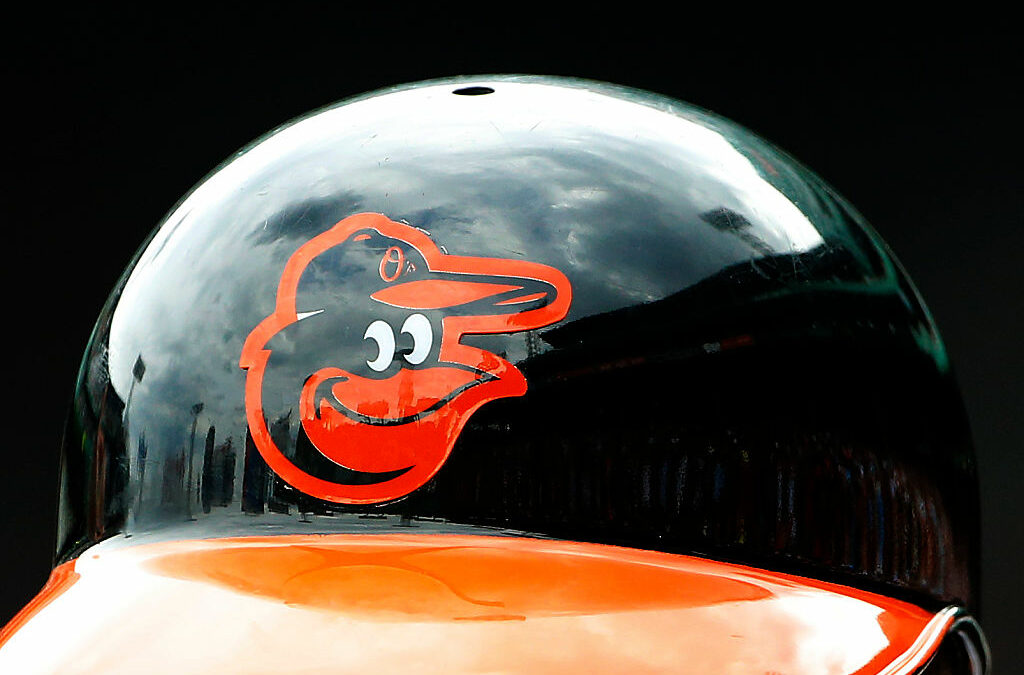
Click on ‘Follow Us’ and get notified of the most viral MLB stories via Google! Follow Us
Like the 2001 Mariners, the 1969 Orioles have an argument to be considered one of the greatest teams of all time, even without winning the World Series. The Orioles would finish the regular season with a record of 109-53, good enough to win the AL East by 19 games over the Detroit Tigers and the AL by 12 games over the AL West Champion Minnesota Twins.
Led by three Hall of Famers in right fielder Frank Robinson, third baseman Brooks Robinson, and young starting pitcher Jim Palmer, four other All-Stars, and AL Cy Young Award Winner Mike Cuellar (who somehow wasn’t an All-Star), the Orioles were easily considered the team to beat in the postseason, having won the World Series three years earlier in 1966 and appearing to be a better version of that team. In the ALCS, the Orioles would face the 97-win Twins, who were led by AL MVP Harmon Killebrew, and easily dispatch them in three games to reach the World Series.
In the World Series, the Orioles faced an upstart New York Mets team who had just swept the Atlanta Braves in the NLCS after never having a winning season in their eight year history. The Mets were led by two future Hall of Fame pitchers in Tom Seaver (who won the NL Cy Young Award and nearly won NL MVP, as well) and an extremely young Nolan Ryan, who would make his only World Series appearance in the series. The Orioles would take Game 1 before the Mets rattled off four straight victories to clinch the series and their first championship in their eighth year as a franchise; they also became the first expansion franchise to win a World Series. The Miracle Mets, as they became known, wouldn’t make it back to the World Series until 1973, and they wouldn’t win another until 1986 (we’ll talk about that later), while the Orioles would return to the World Series the following year and win the franchise’s second championship.
2022 Los Angeles Dodgers
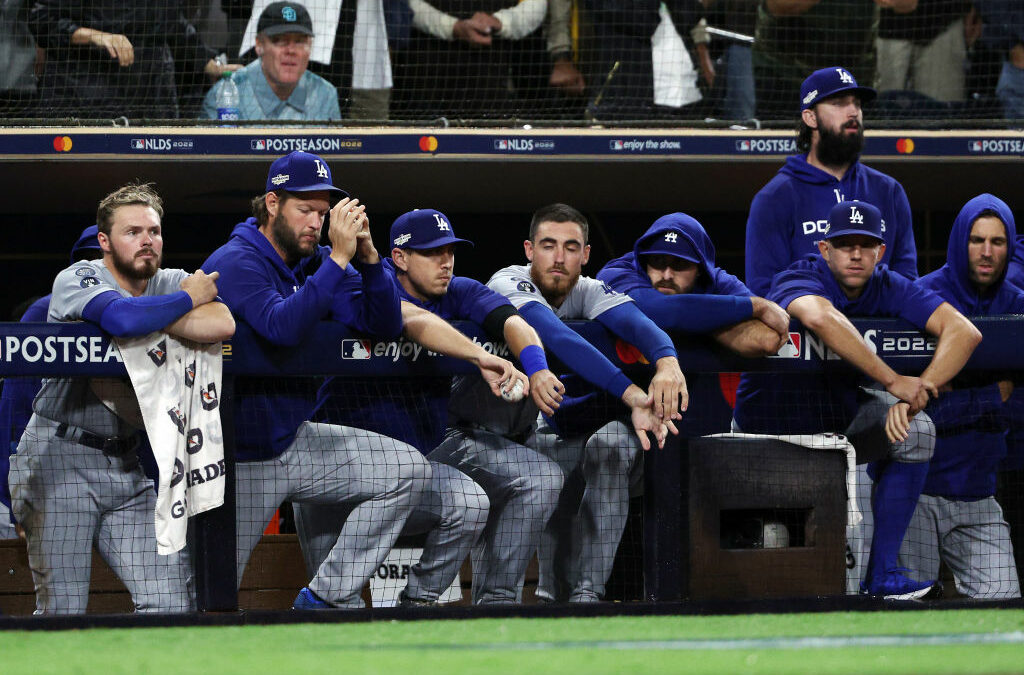
Two years after winning the World Series during the shortened 2020 season, the Dodgers came back with an arguably better squad. Led by six All-Stars, including right fielder Mookie Betts, first baseman Freddie Freeman, shortstop Trea Turner, and three starting pitchers in Tony Gonsolin, Tyler Anderson, and the seemingly ageless Clayton Kershaw.
The Dodgers would finish with a 111-51 record, winning the NL West by 22 games over the San Diego Padres and having the best record in the NL by 10 games over the Atlanta Braves and New York Mets. After a bye in the Wild Card Round, the Dodgers would face the 5-seed San Diego Padres, who had just knocked off the 101-win Mets in a three game series, in the NLDS.
That was where it would end for the Dodgers, as the Padres would take the series in four games. The Dodgers won Game 1, and after that, it was all Padres, as they would take the final three games by scores of 5-3, 2-1, and 5-3 respectively. For a franchise that has been consistently good over the last 10-15 years, even with a rotating cast of players, the 2022 season was another wasted opportunity to get a World Series ring in a full season.
1998 Houston Astros
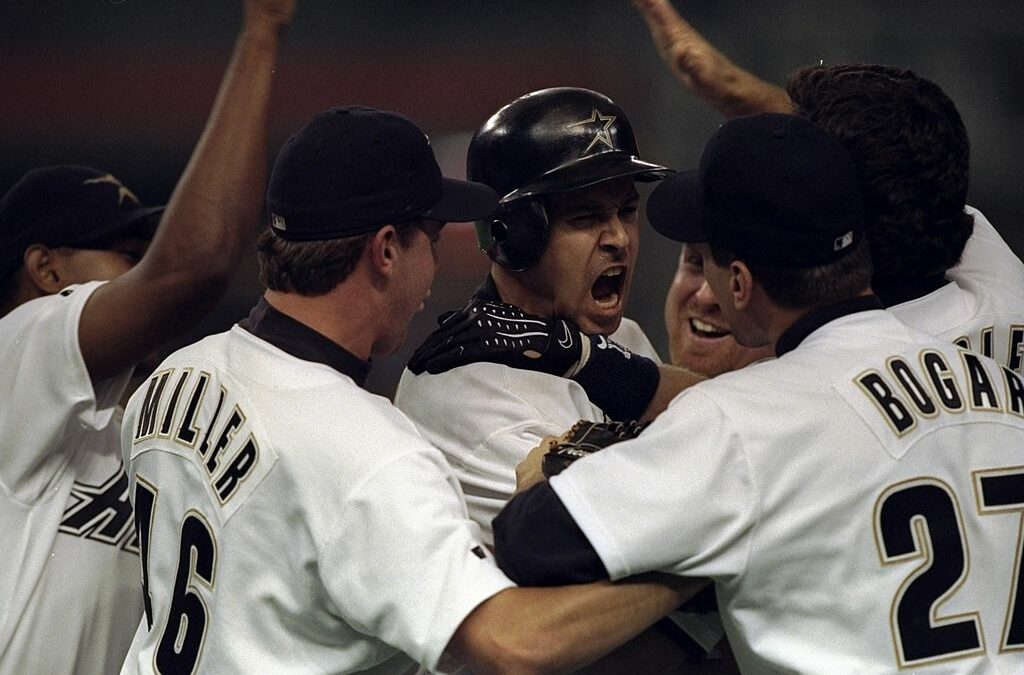
The 1998 Astros are one of those teams that went all-in to create a superteam, and it almost paid off for them in the end. Even though they only had two All-Stars in Craig Biggio and Moises Alou, they had two other Hall of Famers (Jeff Bagwell and Randy Johnson) and another pitcher (Billy Wagner) who arguably should be one.
The Astros had made the playoffs the previous year and lost in the NLDS to the Braves, and in the offseason, they lost their best pitcher, Darryl Kile. To replace him, at the trade deadline they picked up Randy Johnson from the Seattle Mariners, and he became one of the greatest trade rentals that there had ever been. In his 11 starts with the Astros, Johnson had a 10-1 record with four complete game shutouts and an ERA of just 1.28 while averaging a ridiculous 7.2 innings per start and an ERA+ of 322.
The Astros finished with a record of 102-60, good enough for second in the NL behind the next team on this list. In the NLDS, the Astros would face the San Diego Padres, who were led by a strong starting pitching rotation along with an aging, but still very good, Tony Gwynn. The Padres would take Game 1 in Houston before the Astros would fight back to take Game 2. Once the series went to San Diego, the Padres took over and won the final two games to win 3-1. Johnson pitched the first and fourth games of the series, and the Astros lost both of his starts; one of the greatest trade deadline rentals ever turned came back to bite the Astros in the postseason.
1998 Atlanta Braves
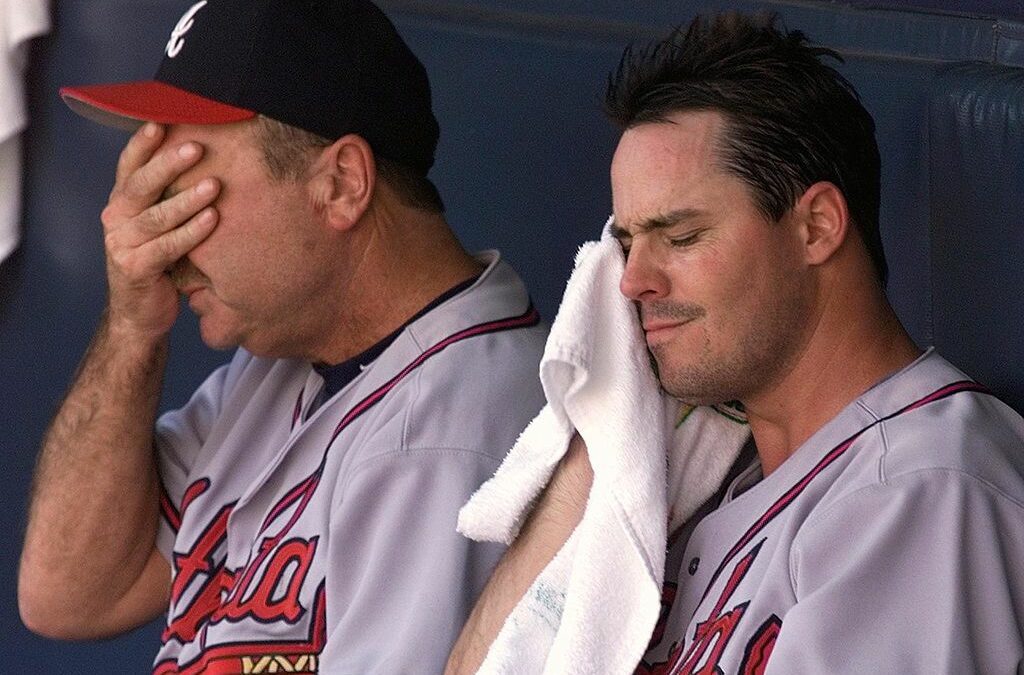
The next team those 1998 Padres faced was the Braves, and we can all understand how this is starting to go. In the regular season, the Braves won 106 games, good enough for the second-best record in the MLB; the World Series was expected to be fought between the New York Yankees and either the Braves or the Astros.
In 1998, the Braves had one of the strongest starting pitching rotations ever assembled, as all five starters had over 15 wins, the first time that had happened since 1930, and the team had two starting pitchers as All-Stars: Tom Glavine (who would win the Cy Young Award) and Greg Maddux. The team also had four other All-Stars in Chipper Jones, Andres Galarraga, Javy Lopez, and Walt Weiss; they should have had two others with Andruw Jones (who was the best player on the team in terms of WAR) and John Smoltz (who was a Cy Young candidate himself).
In the NLDS, the Braves would easily defeat the Chicago Cubs in a three game sweep to set up a date in the NLCS against the Padres, who had just upset the Astros. The Padres would jump out to a quick lead in the series, winning the first three games before the Braves regrouped and won Games 4 and 5. In Game 6, Sterling Hitchcock and Tom Glavine starred in a pitchers’ duel, before Glavine allowed five runs in the sixth inning; these would be the only runs scored in the entire game as the Padres won 5-0 to punch their ticket to the World Series. The Padres would get promptly swept by the Yankees, but the Braves (or even the Astros) would likely have been able to make it much more of a challenge.
2011 Texas Rangers
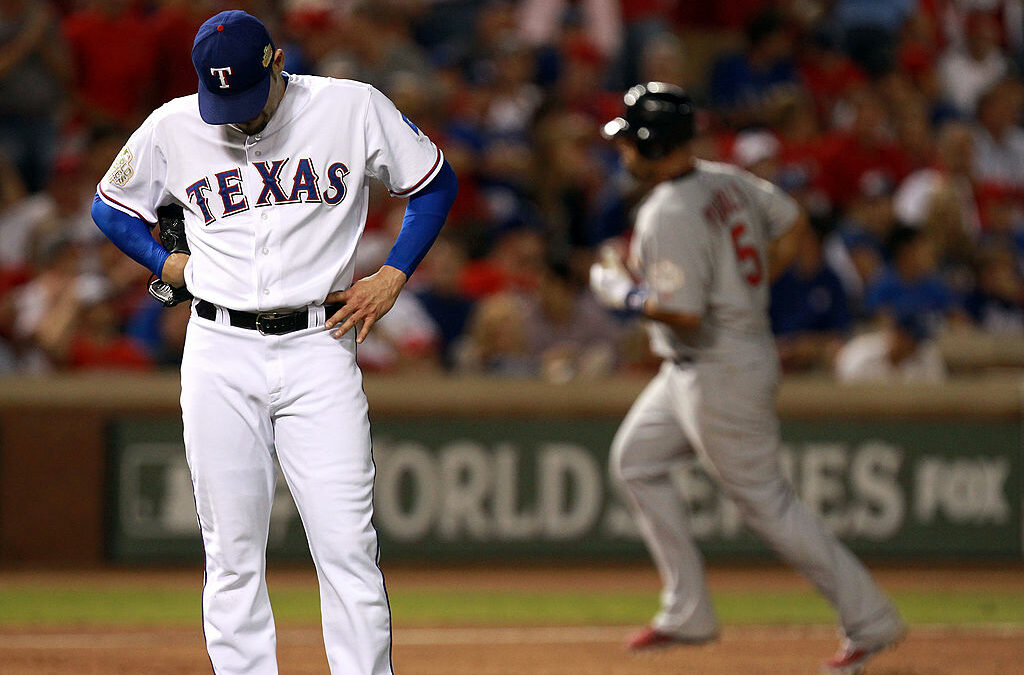
The 2011 Rangers probably got closer to winning the World Series than any team in history ever has that didn’t end up winning it. The Rangers were coming off of a World Series appearance the previous year where they had lost to the San Francisco Giants in five games; they won 96 games in 2011, good enough for the second seed in the AL.
The team was led by their five All-Stars in third baseman Adrian Beltre, starting pitcher (and Cy Young candidate) C.J. Wilson, outfielder Josh Hamilton, starting pitcher Alexi Ogando, and utility player Michael Young; none are Hall of Famers yet, but Young and Beltre have good cases for induction. In the ALDS, the Rangers would face the Wild Card winning Tampa Bay Rays, and after dropping the first game of the series in a 9-0 shutout, the Rangers would bounce back to win the next three on the trot and win the series.
In the ALCS, the Rangers would face off against the third-seeded Detroit Tigers, who had just upset the Yankees in the ALDS. The Rangers would quickly jump out to a 3-1 lead in the series before winning the series in six games to advance to the World Series where they would face the St. Louis Cardinals.
The Rangers would jump out to a 3-2 series lead after five games, and in Game 6, which is looked back on as one of the greatest games in baseball history, the Rangers held the lead 7-5 at the start of the bottom of the ninth inning. After a strikeout, an Albert Pujols double, a walk to Lance Berkman, and another strikeout, David Freese stepped up to the plate with the Cardinals down 2, the tying run on first, and two outs; with a 1-2 count, Freese hit a bases-clearing 2 RBI triple to right field to even the game at 7 apiece.
In the top of the 10th inning, Hamilton would hit a two-run home run to put the Rangers up 9-7, before the Cardinals struck again, with Lance Berkman hitting a single to center field on a 2-2 count with two outs to tie the game 9-9 heading into the 11th inning. The Rangers wouldn’t score in the top of the 11th, which brought Freese up as the leadoff batter for the Cardinals; Freese would take the 3-2 pitch into deep center field to secure the game for the Cardinals and force a Game 7.
In Game 7, both teams would score two runs in the first inning, but after that, the Cardinals would pull away to win by a score of 6-2, and they would win the series in seven games. If the Rangers aren’t the team that came the closest to winning the World Series that didn’t end up winning it, they have to be close; no other team has ever been one strike away from winning the series twice and ended up losing.
1986 Boston Red Sox
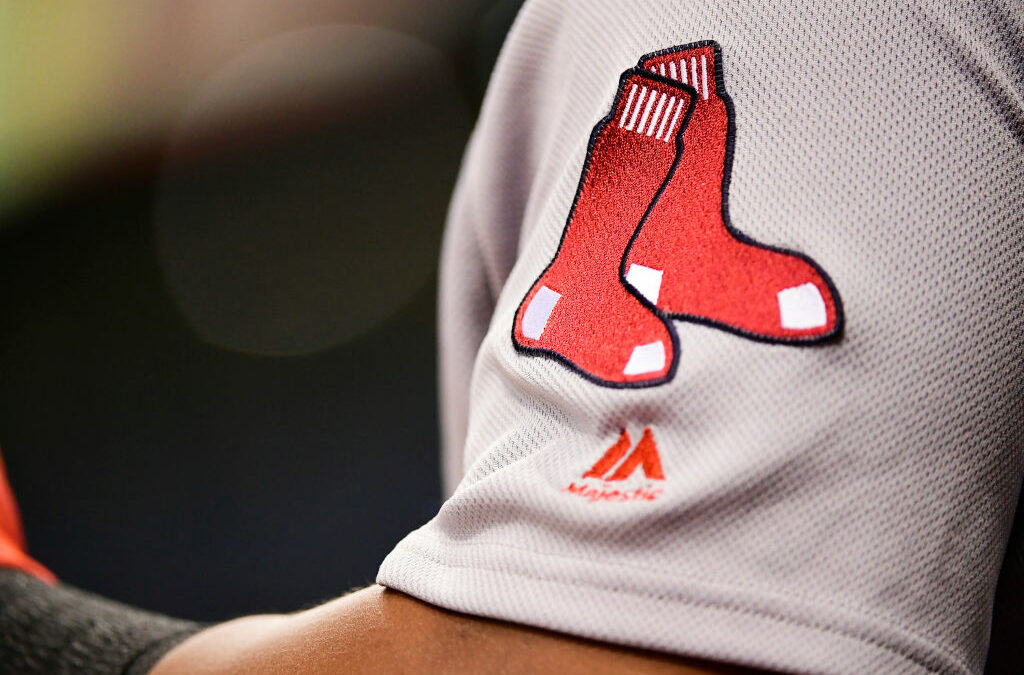
The 1986 Red Sox are probably the second-closest team to winning the World Series that
didn’t, after the aforementioned 2011 Rangers. Well-known for the Bill Buckner game, the 1986 World Series was actually led 3-2 by the Red Sox before the infamous Game 6 gaffe by Buckner; the Red Sox had another chance to win the series in Game 7 before faltering late.
The Red Sox went 95-66 in 1986, good enough to win the AL East by 5.5 games over the Yankees and the entire AL by 2.5 over the California Angels, who they would meet in the ALCS. The team was led by their four All-Stars, including AL Cy Young Award winner and AL MVP Roger Clemens, who had one of the greatest seasons for a pitcher in MLB history, Wade Boggs, Jim Rice, and Rich Gedman; they also had Hall of Famer Tom Seaver, who pitched well despite being 41-years-old.
In the ALCS, the Angels would take a 3-1 lead in the series before the Red Sox would win the final three games by scores of 7-6 (in 11 innings), 10-4, and 8-1 to advance to the World Series, where they would face the Mets, who had won 108 games and were probably the best team in baseball. In the World Series, the Red Sox would take a 3-2 lead off of some stellar pitching from Bruce Hurst, before Buckner failed to field a routine ground ball in the tenth inning of Game 6 and allowed the winning run to come home. In Game 7, the Mets would pull away late to win the game 8-5, and would win the series in the process.
1954 Cleveland Indians
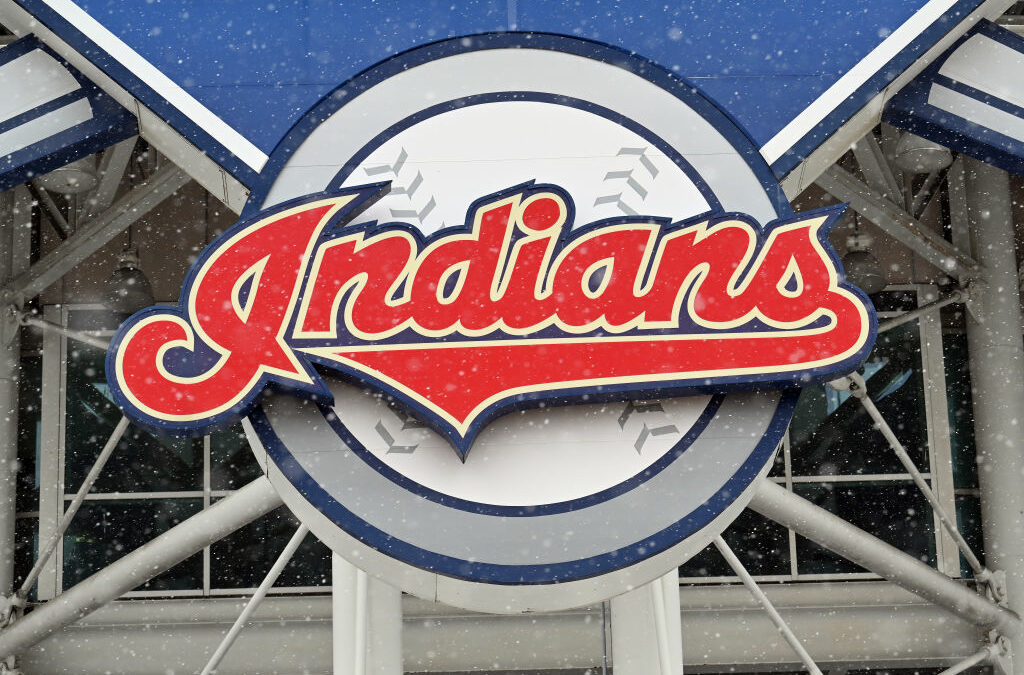
The 1954 Indians won 111 games, good enough to win the AL by eight games over the New York Yankees, who had the second best record in the MLB. They were led by five Hall of Famers in center fielder Larry Doby and pitchers Early Wynn, Bob Lemon, Bob Feller, and Hal Newhouser; the team also had five All-Stars in Doby, Lemon, second baseman Bobby Avila, pitcher Mike Garcia, and infielder Al Rosen and four MVP candidates in Avila, Lemon, and Doby, though none would win as Yogi Berra would win a tight race between five candidates (the White Sox’s Minnie Minoso was the fifth).
In the World Series, the Indians would face the New York Giants, the NL champions and winners of 97 games, and were largely seen as the superior team. In one of the biggest upsets of all time, the Giants swept the Indians in the World Series.
Game 1 featured one of the greatest and most memorable plays in baseball history, which is simply known today as “The Catch”: Willie Mays made an over-the-shoulder catch on a fly ball to deep center field, and his throw back to the infield from the warning track made sure that nobody scored, as there was a runner on second who easily would have scored had the catch not been made. The ball was hit almost 450 feet, which would be a home run in most stadiums today.
2023 Atlanta Braves
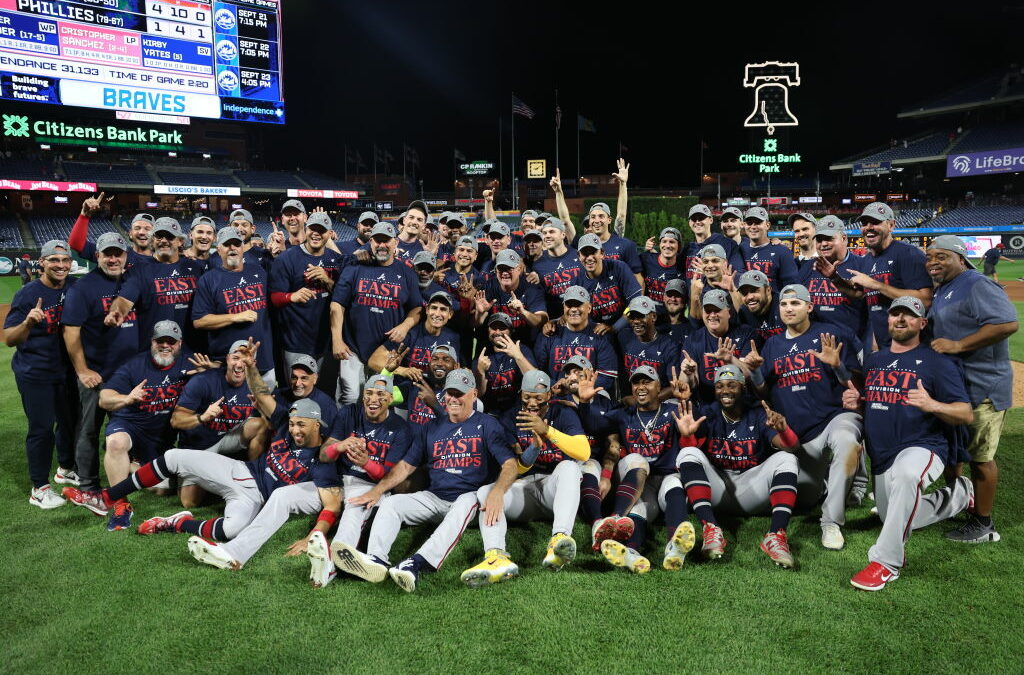
It might seem too early to add a team from this year, but this year’s Braves were undoubtedly one of the best teams to not win the World Series, and they were easily regarded as the best team in baseball going into the postseason. The winners of 104 games, the Braves had the best record in the entire MLB, and won the NL East by 14 games over the Phillies, who were a Wild Card team.
The team was led by eight All-Stars, including presumed MVP award winner Ronald Acuna Jr., who became the first player to have a 40 home run – 70 stolen base season, as well as first baseman Matt Olson (who was also an MVP candidate), third baseman Austin Riley, second baseman Ozzie Albies, catcher Sean Murphy, shortstop Orlando Arcia, and starting pitchers Spencer Strider and Bryce Elder.
In the NLDS, the Braves would face the Phillies, and would get handily beaten in four games. The Phillies would take Game 1 in a shutout before the Braves won Game 2, which ended on one of the greatest defensive plays in postseason history, when center fielder Michael Harris II fielded a fly ball at the warning track, threw the ball back to the infield and Riley, who was standing near second base, was able to field the throw and rifle it to first base to get a force out on Bryce Harper, who hadn’t tagged up after the catch. Game 3 went in a blowout to the Phillies, 10-2, and the Braves’ postseason hopes ended after Game 4, where the Phillies won 3-1 off of two home runs from Nick Castellanos and one from Trea Turner; the Braves’ lone run came off of a solo shot from Riley.


